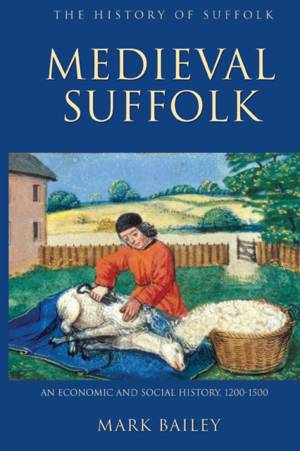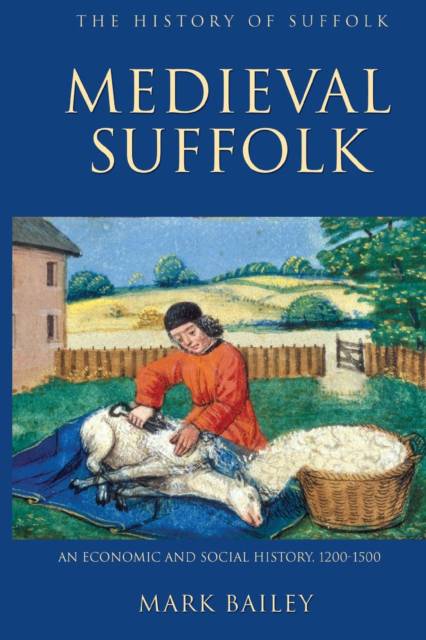
- Afhalen na 1 uur in een winkel met voorraad
- Gratis thuislevering in België vanaf € 30
- Ruim aanbod met 7 miljoen producten
- Afhalen na 1 uur in een winkel met voorraad
- Gratis thuislevering in België vanaf € 30
- Ruim aanbod met 7 miljoen producten
Zoeken
Medieval Suffolk: An Economic and Social History, 1200-1500
Mark Bailey
€ 59,95
+ 119 punten
Uitvoering
Omschrijving
The late middle ages were without doubt the most interesting period in Suffolk's history. By the end of the eleventh century Suffolk was wealthy, densely populated, highly commercialised and urbanised; in the fourteenth century its people faced three of the most tumultuous events of the last millennium, the Great Famine (1315-22), the Black Death (1349) and the Peasants' Revolt (1381). Their response was flexible and innovative, because by 1500 Suffolk was one of the richest and most industrialised regions of England, with a strong economy based on cloth manufacture, fishing, dairying and tanning.
Specificaties
Betrokkenen
- Auteur(s):
- Uitgeverij:
Inhoud
- Aantal bladzijden:
- 358
- Taal:
- Engels
- Reeks:
- Reeksnummer:
- nr. 1
Eigenschappen
- Productcode (EAN):
- 9781843835295
- Verschijningsdatum:
- 18/02/2010
- Uitvoering:
- Paperback
- Formaat:
- Trade paperback (VS)
- Afmetingen:
- 156 mm x 234 mm
- Gewicht:
- 503 g

Alleen bij Standaard Boekhandel
+ 119 punten op je klantenkaart van Standaard Boekhandel
Beoordelingen
We publiceren alleen reviews die voldoen aan de voorwaarden voor reviews. Bekijk onze voorwaarden voor reviews.







